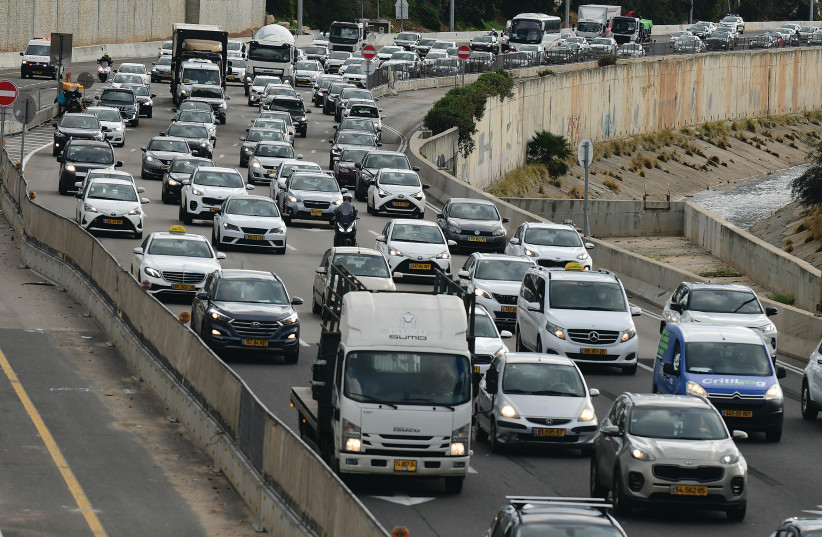Last week, Labor leader Merav Michaeli expressed her support for the Tel Aviv light rail, which will start operating in the coming months, to be active on Shabbat.
In a statement to the press, Michaeli said that she had ordered the head of the National Transportation Agency to put forward a study that will examine the economic and logistic ramifications of the possibility of operating the Red Line of the light rail on Saturdays.
“Not operating the light rail on the weekends significantly harms the people who do not own a private car,” the statement said. “The enormous investment amounting to billions of shekels – by the ministry through NTA in the transportation infrastructure that will form the backbone of transportation in Gush Dan in the next two decades – justifies its full utilization seven days a week for the benefit of the public.”
“Moreover,” she added, “it is expected to lead to a reduction in the cost of living of the public moving in Gush Dan, to strengthening the functioning of the economy, to reducing pollution and the use of private cars, and to a switch to electric and cleaner means of transportation.”
She concluded with the powerful statement that “Israeli citizens deserve an end to the siege on weekends.”

“I have always believed in freedom of movement, and that citizens should not be restricted – neither by day, nor by the hour, nor by any means of transportation, private car or public bus,” the Transportation minister said. “Today, more and more people among the Israeli public need public transportation during the weekend and want it – and many of those who will not use it support the cause.”
Michaeli got it exactly right. What we see here is no less than a siege.
Traffic complaints
In recent years, we Israelis like to complain about traffic.
Everywhere we go, there’s traffic. When we go to work in the morning. When we’re driving back home. When we go with the kids to see a movie and when we go to a concert at night. It seems like we’re always sitting in traffic.
This exactly has to do with public transportation on Shabbat.
Think about it – most Israelis do not keep Shabbat, so to go anywhere on the weekend, they must own a car. There is no alternative for them.
Because of that, the most used means of transportation in the country is a private car – because secular people who would take public transportation all week still need a car to travel on Shabbat. And when we see traffic jams, we demand more roads.
Yisrael Katz
This was what Yisrael Katz did when he was transportation minister for ten years. He invested and took pride in building more roads and expanding the current ones. But what was the outcome? More cars were on the road leading to more traffic jams, a phenomenon called induced demand.
According to population predictions, Israel will grow to be a country of 10 million in two years, and of 13 million by 2040.
The most rapid-growing groups will be young people (due to high population growth) and senior citizens (due to increased life expectancy). These two groups are among the most frequent users of public transportation.
The country cannot bear more drivers on the roads; there is no room for that anymore.
The new mass-transit system that is now being launched in the area of Gush Dan is a blessing and a great solution to this crisis.
It will allow people who live in this dense area to ditch their private vehicles and rely on trains and subways.
This is the case in every major metropolitan area across the globe. There is no other place where public transport operates only six days a week.
Most importantly, the public supports such a move. A recent Hiddush poll shows that 75% of Jewish adults in Israel support operating public transport on Shabbat. This includes 98% of the secular public, 88% of the conservative public and 37% of the National-Religious sector.
Seems like most of the public understand that this issue goes beyond the “status quo.”
Limiting public transport to weekdays is hurting each and every one of us – in our pockets.
Let’s just hope that for Michaeli, this is more than just an election campaign slogan and that we’ll see some actual change.
